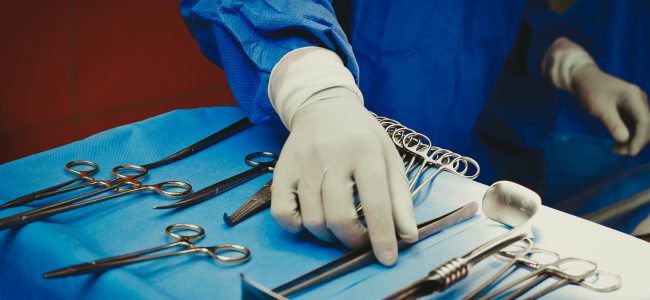BlogLine
A de novo Look at the FDA’s de novo Classification Process and Preemption
5/11/23

By Kevin M. Ringel and Kevin G. Kenneally
A recent federal court decision, Desch v. Merz North America, Inc. & Ulthera Inc., No. 22-cv-02688 (HG), 2023 WL 2734671 (E.D.N.Y Mar. 31, 2023), highlights an untested area of medical device litigation. Presently, there is a lack of case law on whether the FDA’s heightened de novo review process for certain types of Class II medical devices triggers the same express preemption that applies to Class III devices that receive premarket approval.
Unlike the 510(k) approval process, which centers on a device’s “substantial similarity” to other devices already in the market, the de novo process (passed as part of the 1997 FDA Modernization Act) applies to devices that do not have an equivalence to existing devices in the market. The Desch decision suggests that the de novo process can, but does not automatically, trigger preemption from state law products liability claims involving medical devices.
The Desch court declined to apply express preemption at the motion to dismiss stage where the parties were not able to identify any cases in which a court has addressed the issue of the de novo review process and preemption. The court itself could only identify one case raising this issue, Tuttle v. Dexcom, Inc., No. 20-cv-4744, 2021 WL 8998920, at *5-6 (N.D. Ga. May 20, 2021), in which the court declined to apply express preemption to the defendant’s Class II device because it found that it did not have enough information at the motion to dismiss stage to decide the issue.
In Desch, the federal court considered but declined to find on the record before the court that the de novo classification process preempts state law tort and product liability claims. The court held that based solely on the specific clearance documents issued by the FDA, it was unclear whether preemption applied. The Merz product at issue was a Class II device, and the manufacturer argued that express preemption applied to the plaintiff’s claims because their device received a heightened form of Class II review under the de novo process. The court’s application of preemption hinged on proof of the facts surrounding the clearance and conditions surrounding the device. The Desch court did not find preemption applied based on the facts of the FDA’s de novo review of the device because the “special controls” referenced by the FDA in the review documents “were not ‘specific requirements applicable to the particular device,’ as is required for express preemption to apply. Instead the special controls exhibited a ‘lack of specificity’ and merely ‘reflected important but generic concerns about device regulation generally.'” Desch, at *4 (quoting In re Bard IVC Filters Prod. Liab. Litig., 969 F.3d 1067, 1074 (9th Cir. 2020)).
The key principle established in the landmark U.S. Supreme Court case Medtronic, Inc. v. Lohr, 518 U.S. 470 (1996) and modified in Riegel v. Medtronic, Inc., 552 U.S. 312 (2008) is that “the scope of preemption is limited to instances where there are specific FDA requirements applicable to a particular device.” Papike v. Tambrands Inc., 107 F.3d 737, 742 (9th Cir. 1997). The FDA’s guidance on the de novo process states that “this pathway is intended to limit unnecessary expenditure of FDA and industry resources that may occur if devices for which general controls or general and special controls provide a reasonable assurance of safety and effectiveness are subject to a PMA due to a lack of a predicate.” 83 Fed. Reg. 63127-01 (Dec. 7, 2018) (emphasis supplied). There are numerous points in the FDA’s de novo review that establish these de novo devices are evaluated for “safety and effectiveness,” the touchstone of the preemption doctrine.
When faced with a suit involving a Class II device that went through the FDA’s de novo review process, manufacturers will need to demonstrate that the special controls that allowed the device to be cleared under the Class II de novo process provided specific FDA requirements applicable to their particular device. The Desch case not only spotlights a cutting-edge area of medical device litigation, but suggests that as manufacturers seek preemption, they will face a fact-intensive analysis into their device’s specific de novo review process.
For more information, please contact Kevin M. Ringel at Kevin.Ringel@fmglaw.com, Kevin G. Kenneally at Kevin.Kenneally@fmglaw.com, or your local FMG attorney.
Share
Save Print